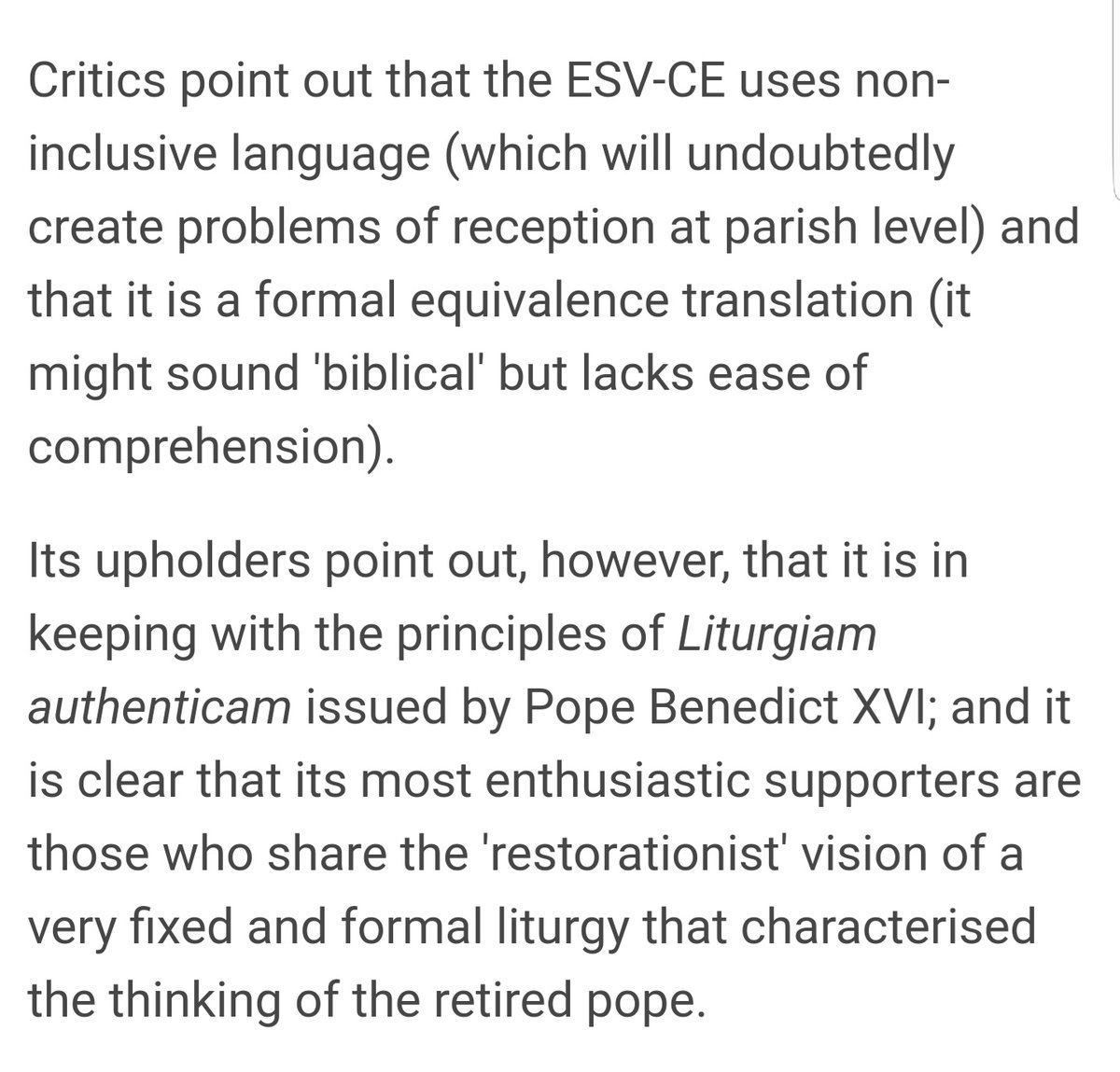
(1/13) I'm currently researching a paper I'll hopefully be presenting next summer on the spirit and intentions of liturgical reform between 1948-1963, specifically looking at the suggestions for a reform of the Mass lectionary. (Assuming the conference isn't postponed again!)
(2/13) At the liturgical congresses of the early 1950s, among the experts' suggestions for reform was an expansion of the readings at Mass, over a multi-year cycle (four years was often advocated).
But why did the experts feel that this was necessary?
But why did the experts feel that this was necessary?
(3/13) Fr Eduard Stommel, priest of the Archdiocese of Cologne, gave his thoughts at the 1951 Maria Laach congress:
„Die im Missale Romanum fixierte Perikopenordnung ist unvollkommen, unausgereift, ungleichmäßig aufgebaut und niemals einheitlich durchgestaltet worden.”
„Die im Missale Romanum fixierte Perikopenordnung ist unvollkommen, unausgereift, ungleichmäßig aufgebaut und niemals einheitlich durchgestaltet worden.”
(4/13) My translation: "The fixed order of readings in the Roman Missal is imperfect, immature, irregularly structured, and has never been consistently worked out down to the last detail."
(Any corrections from native German-speakers are welcome!)
(Any corrections from native German-speakers are welcome!)
(5/13) For reference, the quote is from "Meßperikopen / Zur Frage ihrer Neuordnung", in Trier Theologische Zeitschrift 61.7-8 (1952), pp. 205-213, at p. 207 (accessible via KiDokS: kidoks.bsz-bw.de/files/968/TThZ…)
This article reproduces Fr Stommel's lecture at the Maria Laach congress.
This article reproduces Fr Stommel's lecture at the Maria Laach congress.
(6/13) The implication is that a new, modern lectionary is required for 20th century 'modern man': one that is perfect, mature, properly structured, and rigorously designed in every detail. Only with such a lectionary can effective catechesis be possible in the modern age.
(7/13) It's really quite something to say that the traditional order of readings in the Roman Rite, attested for well over a millennium and used by countless teachers and preachers, is apparently „unausgereift”!
(8/13) Moreover, the experts' solution - the post-Vatican II three-year Sunday lectionary - has not resulted in the faithful having a better knowledge of the scriptures. If anything, biblical literacy, even among Christians, is close to an all-time low (at least in the West).
(9/13) Yes, we hear more scripture in the OF, but the multi-year cycle works against absorbing its message.
Without looking them up, who even knows what the Gospel readings of, e.g., the 26th Sunday per annum are for each year? (Let alone the OT and Epistle!)
Without looking them up, who even knows what the Gospel readings of, e.g., the 26th Sunday per annum are for each year? (Let alone the OT and Epistle!)
(10/13) If you throw someone who can't swim into the deep end of a pool, they will drown. You first need to teach them the basics of swimming, in the shallow end; only then will they be able to swim further out for themselves.
(11/13) The Council Fathers and experts decided the best way to increase biblical knowledge was to read more scripture at Mass - but if the problem is that the faithful don't know the basics, then the act of reading more scripture is akin to chucking them in the deep end.
(12/13) It would have been better to return to the examples of preaching and teaching provided by the homilies of the Church Fathers and Saints - i.e. a "ressourcement" of homiletics and catechesis - and only later start thinking about reforming the lectionary itself.
(13/13) Instead, in SC 51 the Council Fathers put the cart before the horse, and the post-conciliar reform of the lectionary hasn't worked as intended.
IMO, we would be better served by returning to the supposedly „unausgereift” one-year lectionary of the traditional Roman Rite.
IMO, we would be better served by returning to the supposedly „unausgereift” one-year lectionary of the traditional Roman Rite.
• • •
Missing some Tweet in this thread? You can try to
force a refresh



